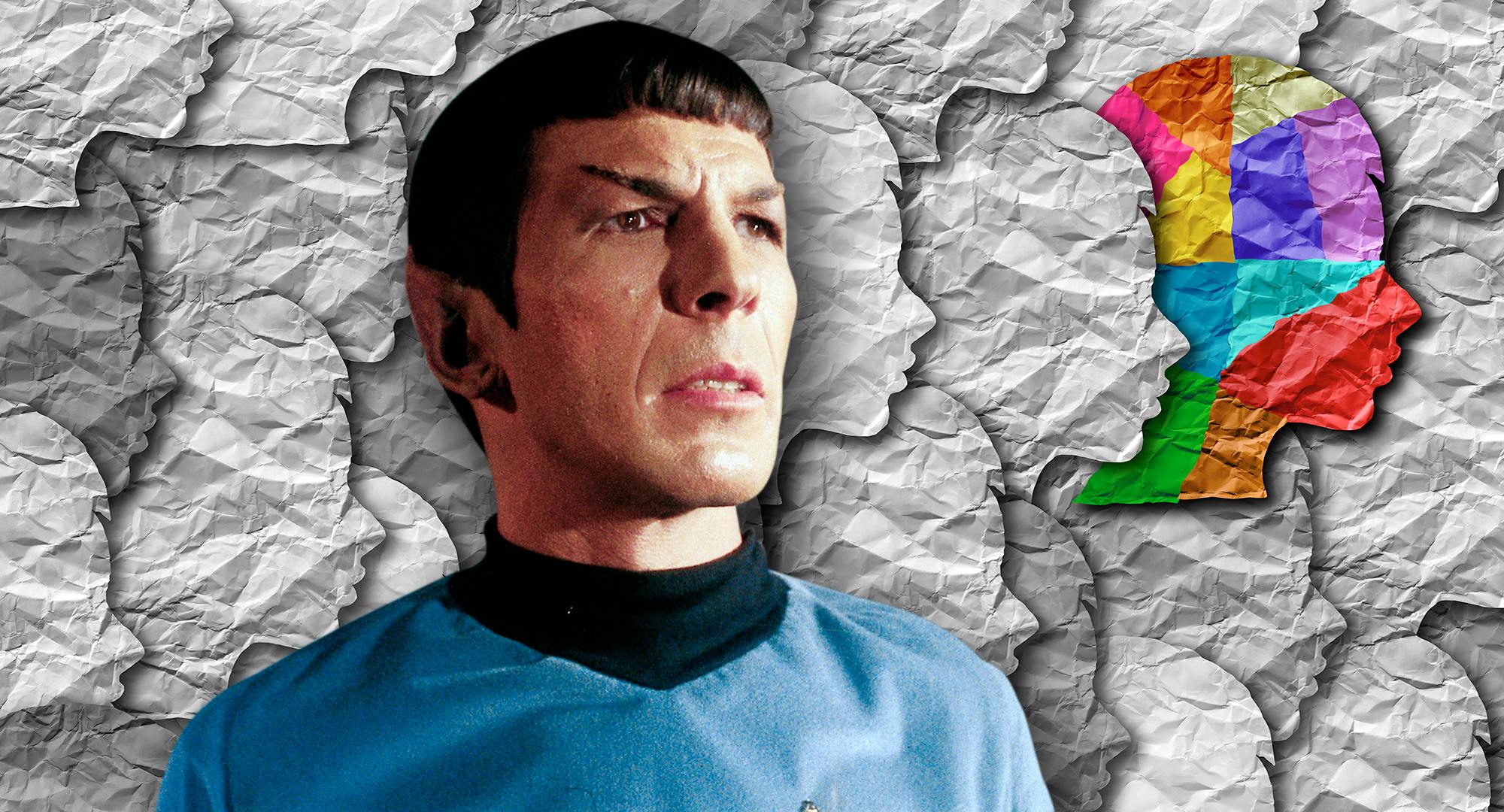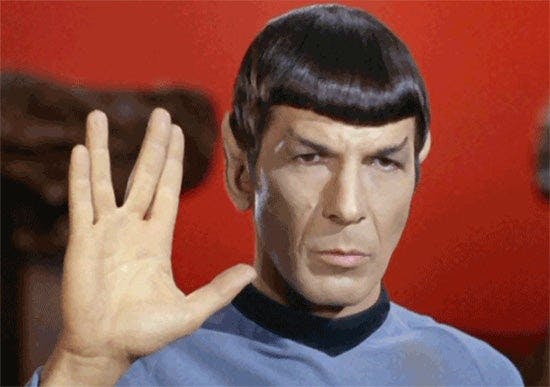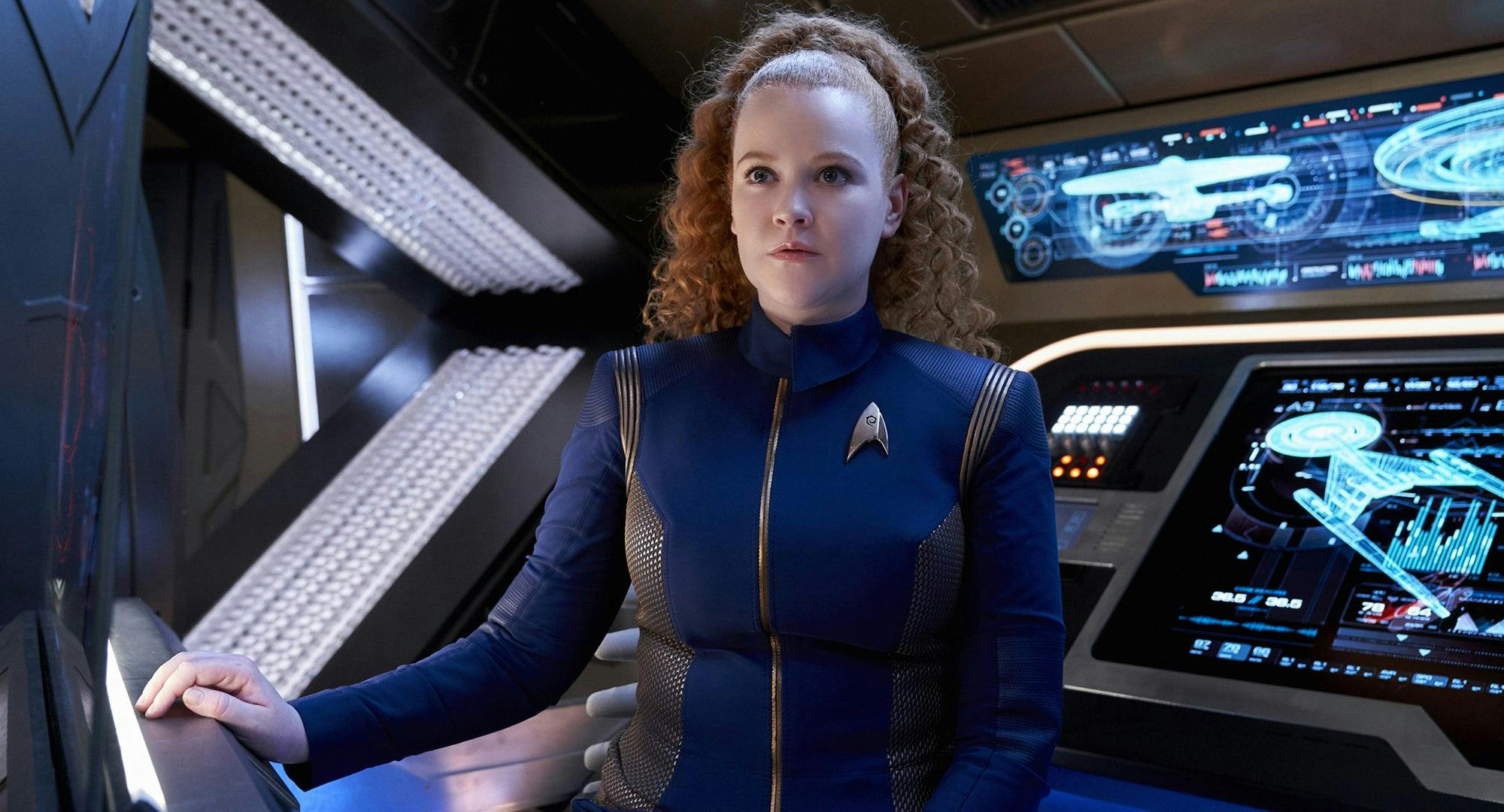Published Apr 2, 2020
For Autistic People, Star Trek Can be a Lens Into the World
Star Trek isn't just a fandom or a special interest, but a framework to view our society.

StarTrek.com
Autistic people are known for their hyper-focused, passionate knowledge of the subjects and ideas that fascinate us most. While a neurotypical person might consider themselves a fan, or someone who simply enjoys a hobby, television show, or fictional universe, an autistic person might see it as a way to communicate, make friends and join communities of like-minded folks, find employment, or understand the world around them. Star Trek cemented its place in autistic culture; whether it’s identifying with characters that might also be autistic, engaging within a specific subset of the fan community, or organizing after a Twitter disagreement with a certain captain over their beliefs about autism. More importantly, for autistic fans, Star Trek is one of many ways we are able to make sense of the neurotypical world around us.Admittedly, I am not an avid Star Trek fan, let alone an autistic person who considered it one of my special interests. My earliest exposures to the franchise came from my dad, who grew up with the original series. The series would resurface when other my fellow autistic friends recounted tales of feeling seen or identifying with the unique communication styles within the different series. While not a diehard viewer, Star Trek’s cultural significance meant that I immediately connected to the starship Enterprise and a world beyond our home planet where people like me were accepted without question. While that touchstone sat well with me, it meant much more to the autistic community members who saw their experiences and lives embodied in the Star Trek universe and used the show as their map of the galaxy.Perhaps the pinnacle of Star Trek broadening horizons for autistic people came in the movie Please Stand By, where Wendy (portrayed by Dakota Fanning), an autistic woman living in a group home, expands her own universe on her journey to submit a Star Trek script to Paramount Pictures. While every detail of Wendy’s life is scheduled, Star Trek brings her immense joy – she looks forward to watching each night at six o’clock, and spends her free time writing about her adventures with Spock. Her journey of self-discovery and independence is fueled by fellow fans, such as her coworkers at Cinnabon, and a kind police officer who interacts with her in Klingon when she is rightly anxious (law enforcement interactions can be dangerous for people on the spectrum). While Please Stand By is a movie about autism and independence, Star Trek moves the plot forward and pushes Wendy’s boundaries and ideas of the world we inhabit.

StarTrek.com
Wendy deeply empathizes with Spock, but she isn’t the only autistic person who feels a connection to the mixed human-Vulcan officer on the starship Enterprise. Most famously, professor of animal science and one of the most prolific figures in the mainstream autism conversation, Temple Grandin, identified with Spock, writing how she identified with how he made decisions with logic and controlled his emotions. His unique way of thinking and comfort in his own skin brought comfort and celebration. Others also hypothesized that Data, who aspired to “be more human” and process feelings in a neurotypical way, was portrayed with an nod to those on the spectrum; fans have also hypothesized Discovery’s Tilly might also be autistic.Like Spock, I tapped into my logic when I decided to set out to learn what about Star Trek in particular makes it a popular interest with those on the spectrum — beyond just the identification with autistic-coded characters. Autistic community members shared stories with me about interpreting the world around them, but for some it went even deeper. Autistic fans explained that they watch Star Trek in times of distress to calm down, while others shared how Deep Space Nine shaped their perspectives of social issues and justice. Star Trek, in one way or another, informed how my fellow autistics learned about themselves and the mostly neurotypical world we inhabit.

Steve Wilkie/CBS ©2018 CBS Interactive
Ultimately, it’s the franchise’s ethical principles, progressive acceptance, and strong sense of justice embedded within each episode that autistic people find themselves relating to. Sara Luterman, an autistic journalist, previously wrote “[Spock] exists in an environment where everyone around him accepts his alternate perspective and never treats it as burdensome or a deviation from the ‘correct’ one.” Another autistic fan, Leena Haque, told me she loved that Star Trek “always promoted the importance of equality.” With crew members believed to be autistic and getting along in a world with fairness and justice, it was easy for some autistic fans to feel that was a world they could live in and feel like part of our real world communities, too. Even while not being a superfan, Star Trek always makes me feel as though I could live in an accepting world that so many of my friends and fellow autistics observed throughout the galaxy and dream of here on Earth.
With those hopes and views in mind, may all autistic people live long and prosper – in the ways we choose to interact with the things we love, in the world that is learning to accept us as we are.
Haley Moss (she/her) is an attorney, author, artist, and autistic self-advocate who is passionate about neurodiversity and disability inclusion. Find her on Twitter, Instagram, and Facebook @haleymossart.
